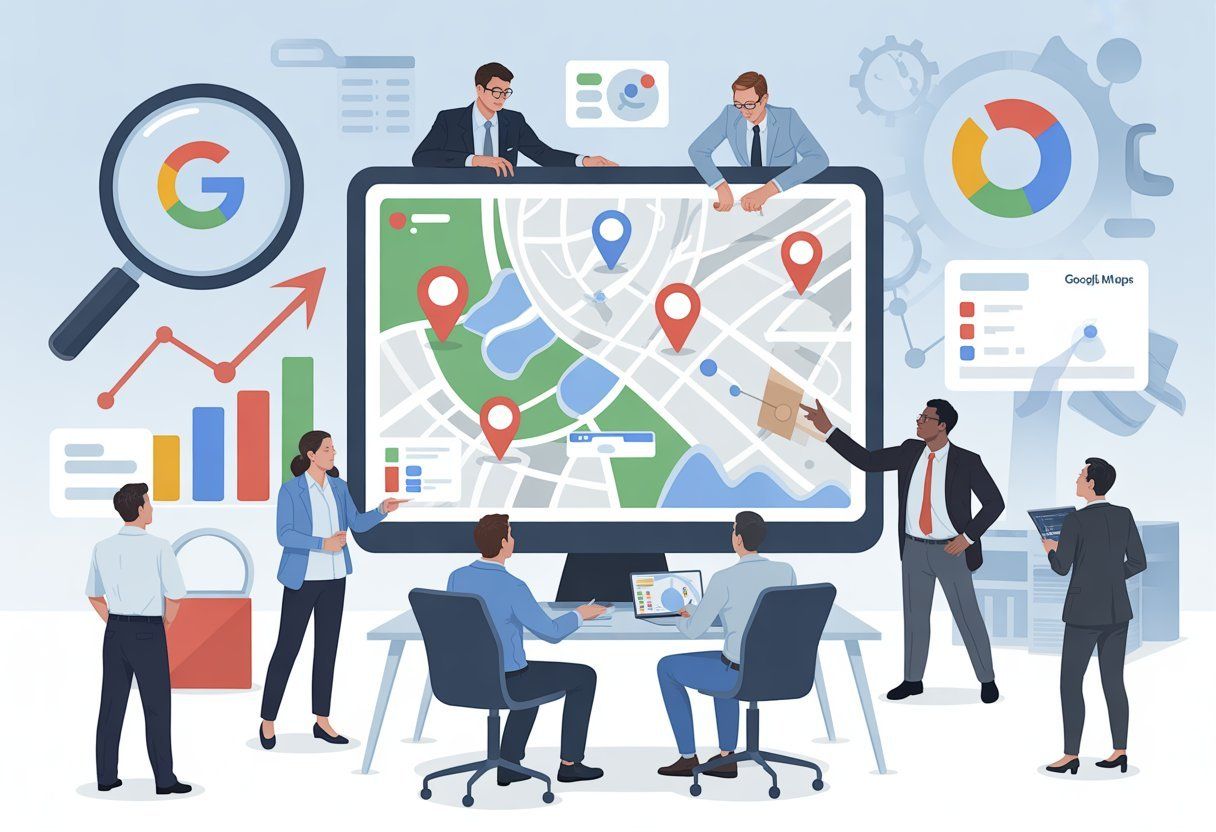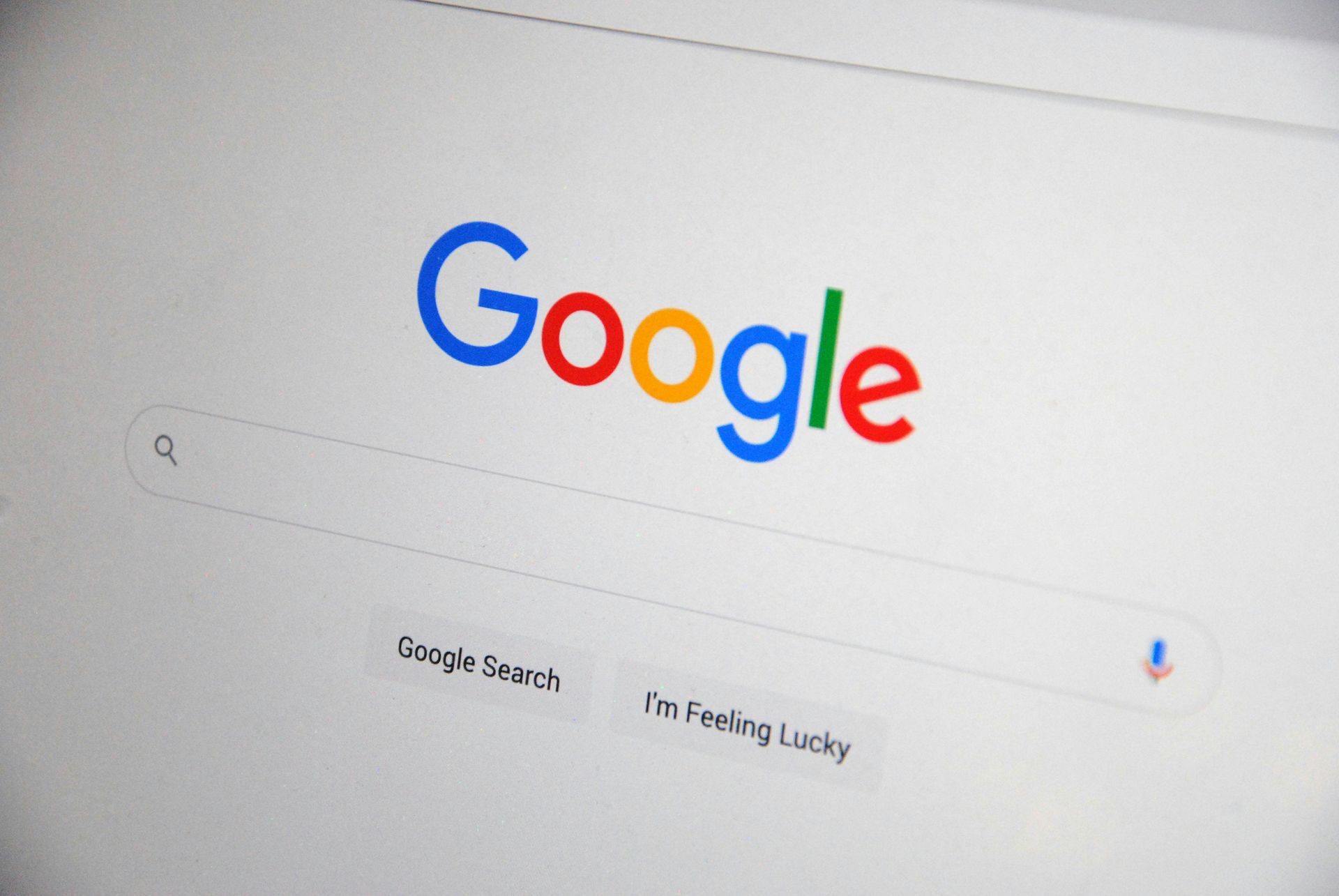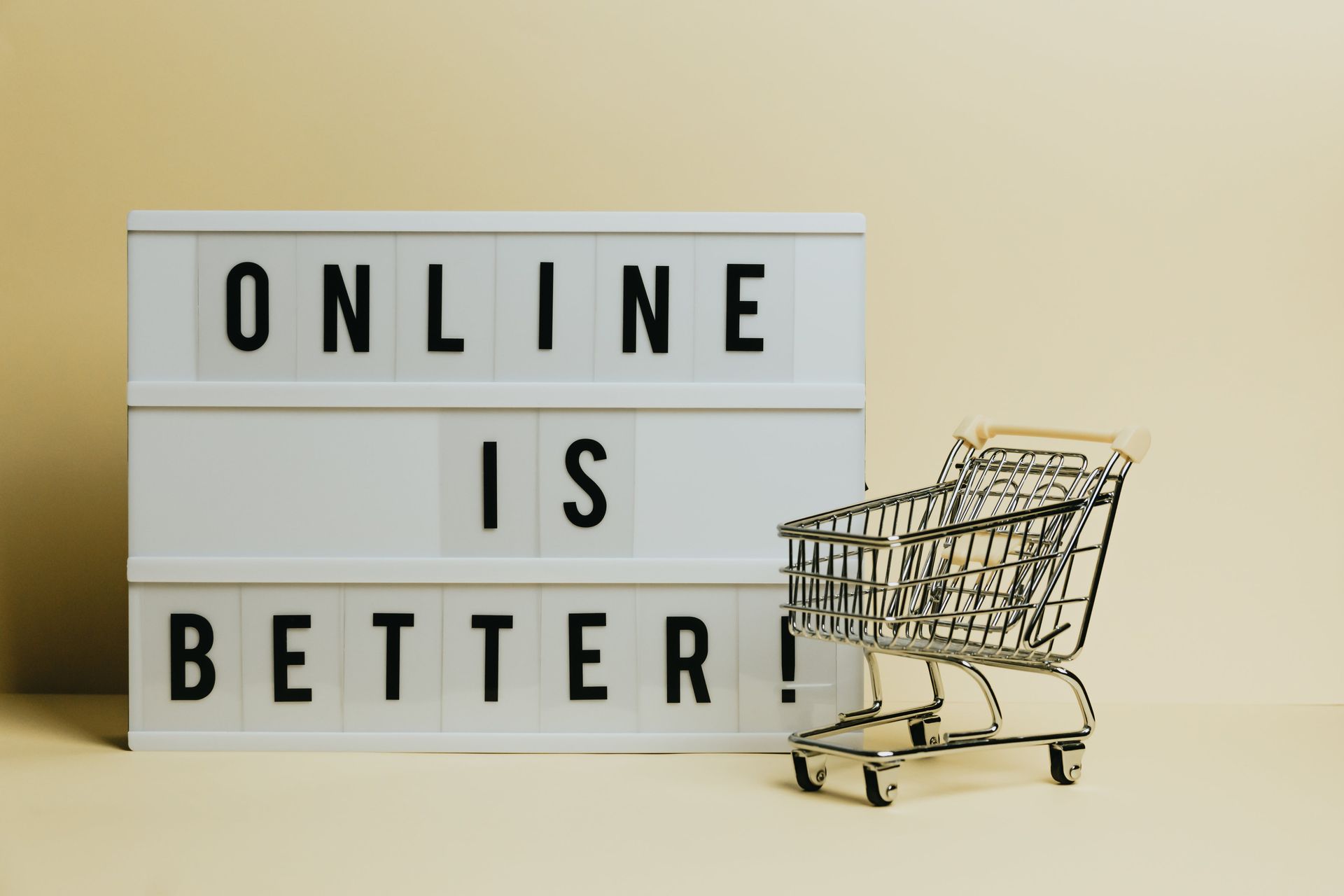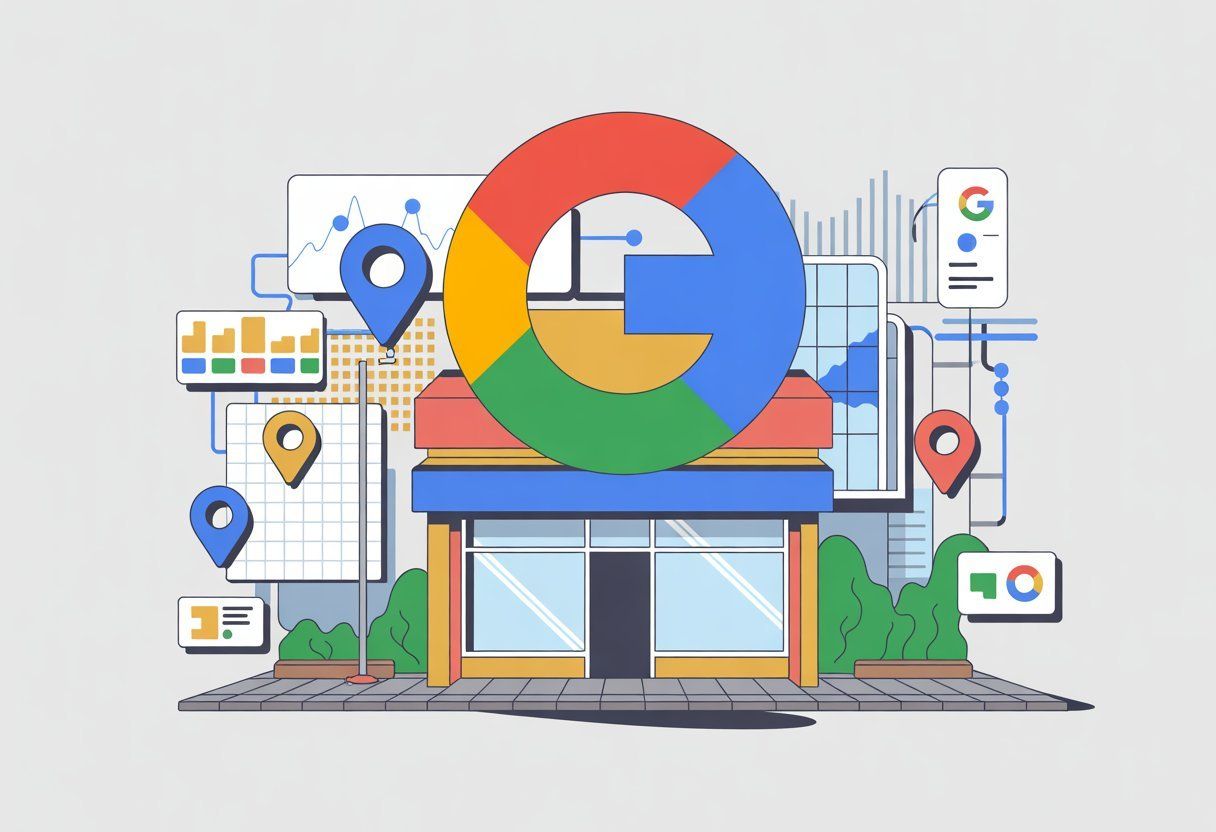SEO My Website Guru SEO Blog
By Frank Jones • November 2, 2025

Organic Search or Pay Per Click? Lets Dig In.
When you type something into Google, you’ll see two types of results: organic listings that show up naturally, and paid ads that companies pay for. Organic search results are free and earned through good content and SEO, while paid search results cost money for every click but appear instantly.
Both methods help businesses reach customers, but they work in totally different ways.

It’s actually pretty important to understand these differences for business success. Organic search takes time to build but doesn’t cost anything per click once you’re ranking well.
Paid search gives you instant visibility but needs an ongoing budget to keep traffic coming. Many businesses end up using both strategies together.
The choice between organic and paid search really depends on your goals, how fast you need results, and your budget. Maybe you’re after quick wins for a product launch, or maybe you want to build long-term brand awareness.
Knowing how each approach works will help you make smarter decisions about where to spend your time and money.
Organic Search vs. Paid Search: Core Differences

Organic search and paid search use different methods to get your website noticed on search engines. They differ in how they work, how much they cost, and how long the results last.
Definition of Organic Search and Paid Search
Organic search means the unpaid listings on search engine results pages (SERPs). These results show up because your website matches what people are searching for.
Google and other search engines rank organic results with complex algorithms. They consider things like content quality, website authority, and user experience. You don’t pay for clicks on these links.
Paid search is all about ads that appear on SERPs when you pay for them. You’ll usually see these marked as "sponsored" or "ad."
Paid search runs on auction systems. You bid on keywords and pay whenever someone clicks your ad. That’s the pay-per-click (PPC) model.
The main difference? Organic search results are earned through SEO efforts. Paid search results are bought with ad spend.
How Organic Search Works
SEO is what drives organic search visibility. You optimize your website’s content, structure, and technical details to rank higher naturally.
Search engines crawl your site to figure out what each page is about. They index this information and use it to decide when to show your pages in search results.
Key ranking factors include:
- Content relevance and quality
- Website loading speed
- Mobile-friendliness
- Backlinks from other sites
- User engagement signals
Organic traffic comes from people clicking your unpaid search results. This traffic grows over time as your SEO efforts improve your rankings.
It takes a while—sometimes months—to see big results. But once you’re ranking well, you can get steady traffic without paying for every click.
How Paid Search Works
PPC campaigns put your ads at the top or bottom of search results right away. You create ads, pick keywords to target, and set your max price per click.
When someone searches for your keywords, search engines run a quick auction. Your ad placement depends on your bid and your ad’s quality score.
Common paid search platforms include:
- Google Ads
- Microsoft Advertising
- Amazon Advertising
You only pay if someone clicks your ad, so it’s easy to predict costs. You can set daily spending limits and adjust them whenever you like.
Paid traffic stops as soon as you stop spending. Your ads vanish from search results the moment your campaign ends or your budget runs out.
Key Distinctions in Cost, Timing, and Sustainability
The cost structures are very different. Organic search needs upfront investment in content and SEO tools. Paid search needs ongoing ad spend.
| Factor | Organic Search | Paid Search |
|---|---|---|
| Initial Cost | SEO tools and content | Ad setup and spend |
| Ongoing Cost | Maintenance and updates | Per-click payments |
| Timeline | 3-6 months for results | Immediate visibility |
| Sustainability | Long-term traffic | Stops when budget ends |
Timing is a big deal here. Organic search builds slowly but keeps growing over time. Paid search gives you instant results, but you have to keep funding it.
Sustainability really leans toward organic search for long-term strategy. Well-ranking content can bring visitors for years. Paid search is great for quick wins or time-sensitive promotions.
Comparing Strategies for Success

Both organic and paid search have their own strengths when it comes to traffic quality, costs, and growth. The best fit depends on your budget, timeline, and goals.
Traffic Volume and Quality
Organic search brings in highly targeted traffic because users find your content naturally. People who click organic results usually have strong intent and trust what you offer.
Your click-through rates are often higher with organic results. Users trust regular listings more than ads, so you get better engagement and longer visits.
Paid search campaigns give you instant visibility and let you control how much traffic you get. You can raise your budget to get more clicks right away, but some users skip ads altogether.
Your conversion rate depends on how well your ads match what people want. Paid traffic can convert well if you target the right keywords and build compelling landing pages.
| Traffic Factor | Organic Search | Paid Search |
|---|---|---|
| Volume Control | Limited by rankings | Instant scaling |
| User Trust | Higher | Lower |
| Click Quality | Very targeted | Depends on targeting |
| Cost per Visit | Free after ranking | Ongoing cost per click |
Long-Term vs. Short-Term Benefits
Sustainable traffic comes from organic search rankings that build up over time. Once you’re ranking well, you get steady visitors without paying for every click.
Your return on investment grows with organic search as time goes on. The upfront work on keyword research and content creation can pay off for months or even years.
Paid search delivers results immediately, but it stops the moment you stop paying. Your digital marketing strategy might need both approaches to balance quick wins with long-term growth.
Immediate visibility with ads helps during launches or seasonal campaigns. You can test markets and gather data for your organic strategy.
Credibility and Trust Impact
Brand authority grows when you rank high in organic search. If your content shows up on page one without the "Sponsored" tag, people see you as an expert.
Brand trust often feels stronger with organic visibility. Users know you earned your spot with quality content, not just money.
Paid search can still build brand credibility if your ads and landing pages offer real value. Google Ads and similar platforms reward helpful, relevant content with a higher quality score.
Brand recognition jumps when users see you in both organic results and ads. That double presence really boosts your online visibility .
Choosing the Right Approach for Your Goals
Go with organic search if you want steady, sustainable growth and have time to build up organic search visibility. This works best for businesses with resources for keyword optimization and content creation.
Your target audience research should drive your approach. If your customers look for info before buying, organic content helps you reach them early in the process.
Pick paid search if you need fast results or want to test new markets. Your online marketing strategy gets a boost from instant data on what keywords and messages work best.
Budget matters a lot. Organic search needs upfront investment in content and SEO. Paid search requires ongoing spending but lets you control your daily costs.
Competitive markets usually need both. High-competition keywords might be pricey for ads and take months to rank for organically.
Frequently Asked Questions
It’s normal to have questions about organic and paid search—especially about costs, results, and how to get started. Here are some of the most common ones businesses ask.
How Can SEO My Website Guru Help Me?
SEO My Website Guru offers complete search engine optimization services to boost your organic rankings. They’ll check your website’s current performance and spot areas to improve.
Their team builds customized SEO strategies around your business goals. You’ll get keyword research, content optimization, and technical SEO fixes.
They keep an eye on your SEO campaigns and adjust things as search algorithms change. You’ll see detailed reports showing how your organic traffic grows over time.
Their expertise helps you dodge common SEO mistakes that can hurt your rankings.
What is the distinction between organic and paid search results?
Organic search results show up naturally because they’re relevant to what people search for. Search engines pick these listings as the best match for users’ queries.
Paid search results are ads that appear at the top of search pages. Companies pay for these spots using bidding systems like Google Ads.
Organic results usually sit below the paid ads in the middle of the page. You don’t pay for each click, but it takes time and effort to climb to the top.
Paid results are clearly marked as "sponsored" or "ad" so you can tell them apart from organic listings. Just look for their placement and those labels.
Can you provide examples of organic search results versus paid search results?
Let’s say you search for "running shoes." The first few listings you see are usually paid ads from retailers.
These ads often show product images, prices, and a little "sponsored" label. Scroll down, and you’ll spot organic results like review websites and brand pages.
Those organic results earned their spot thanks to SEO, not because someone paid for them. If you search for a local restaurant, you’ll see paid ads for delivery services at the top.
After that, organic results pop up, such as the restaurant’s own website, review sites, and maybe a local directory or two. For something like "how to plant tomatoes," paid ads might promote gardening tools.
But the organic results? They’re usually gardening blogs, university extension sites, and how-to guides that people trust.
How do organic search results impact digital marketing strategies?
Organic search actually provides much better performance than paid search—like, several times better, according to recent data. That’s why SEO becomes a key piece of any long-term marketing plan.
Your organic rankings help build credibility and trust with potential customers. Most folks see organic results as more genuine than paid ads.
With a strong organic presence, you don’t have to rely so much on paid ads. That frees up your marketing budget for other things while still keeping your search visibility solid.
Organic search attracts people at every stage of the buying journey. Whether they’re just researching or ready to buy, your organic content can guide them right to your business.
Are there significant differences in performance statistics between organic and paid search?
Paid search usually gets more immediate clicks since it sits at the top. But organic search brings in higher quality traffic that tends to stick around longer.
Paid search click-through rates have gone up a bit over the years, reaching 4.1% in 2025. Still, organic results see better engagement overall.
It’s interesting—about one out of ten blog posts actually gets more organic traffic as time goes on. That means your content could keep growing in value long after you publish it.
Most search queries have four or more words, so detailed organic content really shines. Long-form answers to specific questions tend to perform best in organic search.
How do the costs associated with organic search compare to paid search?
Organic search doesn’t charge you for clicks or impressions. You’ll mostly spend time, maybe invest in content creation, and use a few SEO tools or services.
Paid search works on a pay-per-click basis, so you’re paying every single time someone clicks—whether they buy or not.
With organic, you might wait a few months to see results, but once you rank well, that traffic can keep coming for years without extra costs. Paid search, on the other hand, gives you instant visibility but stops cold when your budget runs out.
Organic rankings can keep delivering traffic even if you need to cut back on spending. That’s a pretty appealing safety net, isn’t it?
What are the long-term benefits of organic search versus short-term gains of paid search?
Organic search slowly builds real authority and helps your brand stick in people’s minds. Over time, your website turns into a go-to spot that keeps pulling in visitors—no need to constantly pay for each click.
Paid search, on the other hand, gives you a quick burst of traffic. It’s like flipping a switch, but you’ve got to keep paying to keep the lights on.
As your organic rankings grow, they tend to hold more weight. Older, well-established content usually beats out the new stuff in search results, which honestly feels pretty rewarding.
Every bit of effort you put into organic search adds up. Each new optimized page or blog post gives your whole site a little boost, and that’s where the magic really starts to happen.

About the Author:
Frank is the founder of SEO My Website Guru, a local SEO agency specializing in Map Pack rankings and organic growth for service-based small businesses. Drawing on years of hands-on experience testing real campaigns, auditing sites, and tracking thousands of keywords, he focuses on what actually drives calls, leads, and revenue—not vanity metrics. Frank regularly documents processes, runs data-backed experiments, and uses transparent reporting so business owners always know what’s happening and why. His approach is simple: ethical, evidence-based SEO that’s built to earn trust and long-term results.
Insights to fuel your marketing business
Sign up to get industry insights, trends, and more in your inbox.
Contact Us
We will get back to you as soon as possible.
Please try again later.
SHARE THIS
Latest Posts









